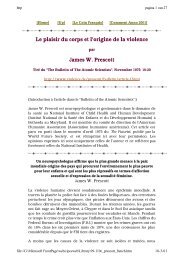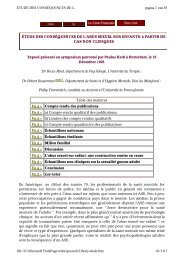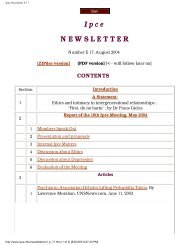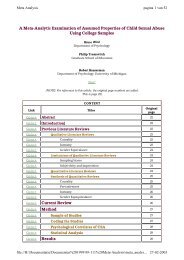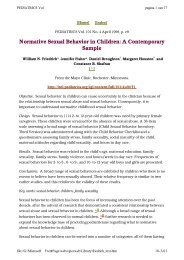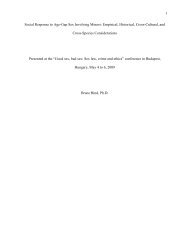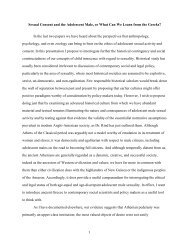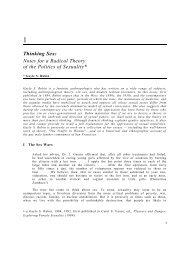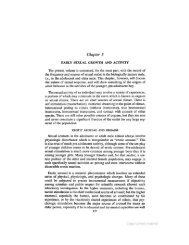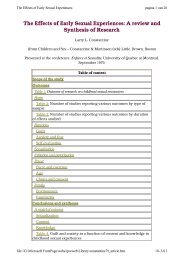PDF file - Ipce
PDF file - Ipce
PDF file - Ipce
You also want an ePaper? Increase the reach of your titles
YUMPU automatically turns print PDFs into web optimized ePapers that Google loves.
1. Discussion Ethics<br />
To be very practical: everyone who reads the word 'sex' in this context will interpret it as<br />
'penetration'. That’s not what we mean to say. We mean 'intimacy' in its many grades.<br />
Then, the concept of initiative is based on a wrong idea: the idea that in a loving relationship<br />
one or the other takes the initiative to a next step in intimacy. It's the theory of seduction,<br />
which, in society's view, is always performed by the adult. So, as a kind of defence, we have<br />
said, 'Do not take the initiative'. But in a loving relationship, each initiative is taken by one and<br />
the other, by one with the other. Each initiative is only a proposal to the other and the other will<br />
respond to it.<br />
It's not realistic to say 'Do not take any initiative'. What we want to say is: ‘Be very attentive to<br />
the answer and the feelings of the other’. If the other says 'no', it is 'no'. What we want to say is:<br />
the grade of intimacy in any relationship will be decided by both partners in communication<br />
with each other, both having freedom of choice and the right to self-determination.<br />
So, in talking about any relationship, one should always mention both partners, and the rights<br />
and responsibilities of both. The adult may have some more responsibilities, the young one also<br />
has responsibility and the adult also has rights.<br />
Both partners are members of a society, which generally now has other ethical principles and<br />
which especially denies young people their right to self-determination. This is an extra<br />
consideration to have in thought for the responsibility of both partners.<br />
In earlier discussions it was said that there are not only (long-lasting) relationships, but also<br />
(shorter) contacts. Ethical guidelines should mention both.<br />
New text:<br />
Freedom of choice<br />
In any intergenerational relationship or contact, both partners, the adult as well as the<br />
young person, have it in their power to regulate their own lives, their relationships<br />
and the grade of intimacy.<br />
Each partner has the right to self-determination and the responsibility to acknowledge<br />
this right in the other. Therefore, both partners in open communication will at any<br />
moment choose the grade of intimacy.<br />
In friendship relationships or contacts, both partners have the freedom to withdraw<br />
from the relationship at any moment. Love and dedication are unconditional; they<br />
bind partners who are free and independent.<br />
In dependency relationships or contacts, (such as parent-child or teacher-pupil) love and<br />
dedication should also be unconditional, but freedom to withdraw does not exist in<br />
practice. So, extra attention should be given to the right to self-determination and the<br />
responsibility of both partners. Here, the grade of intimacy has two limits: complete<br />
http://home.wanadoo.nl/ipce/newsletters/e_14/report_1.htm (3 of 4) [10/16/2002 5:33:36 PM]



